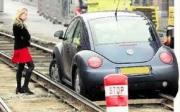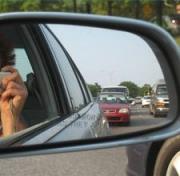This story was covered a week or so ago in another newspaper, but I didn’t think it was worth mentioning it. Well, not again, anyway (see this article, and this one). Wouldn’t want to be labelled a misogynist, now, would I?

The North-West Evening Mail has picked up on it as an editorial rather than a revelation.
The author, Louise Allonby – yes, a woman – notes that official DSA figures show women are about 7% more likely to fail their test than men, and that a major factor appears to be parking skills. Well, a lack of them.
As she quite rightly notes: well, there’s a surprise!
I agree. Keep saying women are bad at parking is just stating the obvious, and it’s not that which made me comment on the story. It’s some of the examples that she – as a woman – mentions.
There’s one about parking per se, but others about clipping wing mirrors, 3-point turns, not going on “scary” motorways, not going on bridges, not switching on their lights, using mobile phones, and so on.
But she also mentions my pet hate:
And it appears that a disproportionate number of cars being driven particularly badly around our towns have those ridiculous “Baby on Board” badges stuck to the back windscreen. To which the only possible response is “so what?”
Or is it that by having one of those badges in their car, women are somehow magically absolved from the normal rules of driving? If so, I think I might invest in one.
I lose count of the number of chavs I see with these things stuck in their cars, kids leaping around all over the place, being driven like they’re on a mission.






